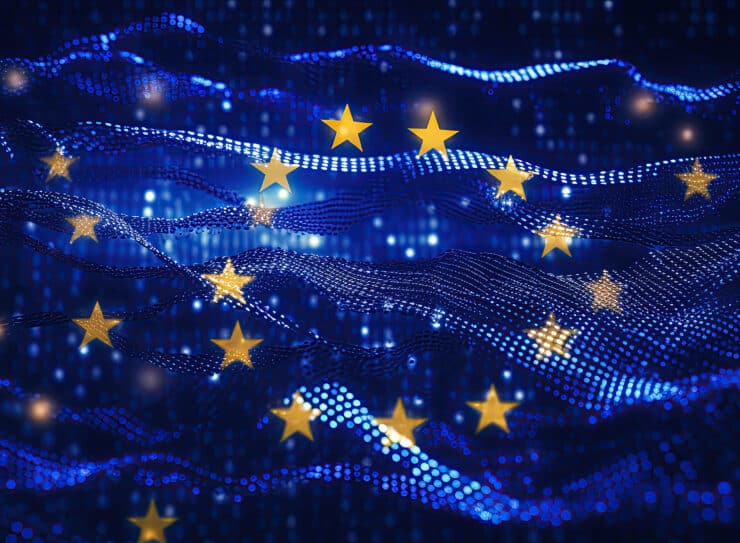5 December 2023
Effective AI regulation in the EU and beyond: Towards a global AI Treaty?
In a world where all technologies advance quickly together with AI, what kind of future are we aiming for?

In a world where all technologies advance quickly together with AI, what kind of future are we aiming for?

By Francesco Cappelletti, Senior Policy and Research Officer, European Liberal Forum and Viktorya Muradyan, Communication Officer, European Liberal Forum
Update as of 06.02.2024
On 2 February, EU member states voted unanimously to approve the AI Act after many months of discussions and debates. During the last mandate, EU policymakers have tried to harmonise the definition of AI, address the intricacies of national security and bring together the divergent perspectives on pro-industry vs pro-innovation approach. With this regulation, EU policymakers create a flexible and strong set of rules that support innovation and ideas while also protecting the interests and well-being of consumers and society.
The AI Act marks a philosophical shift in the EU toward smart policymaking, focusing on ethics and sustainable technology. It also acknowledges Europe’s old resistance to changes, dealing cleverly with national interests. The next step for the EU policymakers should be presenting this act internationally and standing for an AI Treaty. The European Union is in total capacity to lead a global effort to regulate AI.
The European Union aims to be a global leader in AI regulation. Artificial Intelligence has the potential to revolutionise various sectors but also comes with significant risks that require comprehensive regulation. In a world where all technologies advance quickly because and together with AI, what kind of future are we aiming for?
How much regulation does AI need?
Artificial intelligence fascinates due to its efficiency and ability to outperform humans in many tasks, leading to debates on its optimal use and purpose. As the potential of AI expands with significantly more developed real-life applications, it’s becoming easier for the wrong hands to misuse it.
There are concerns about the impact of underregulated AI on democracy, human rights, and privacy, especially in the use of technologies like facial recognition in public spaces. However, the risks connected to AI don’t come from the technology or the foundational model. AI risks are often contextual, necessitating a risk-based and ad-hoc assessment approach to regulation.
Just like AI, laws aren’t just something made up in Brussels, as they have real-life implications. They shape how we live, giving us direction and structure in this fast-paced era. But can we create future-proof rules for technology?
Safeguarding innovation
The EU aims to be a global leader in AI regulation by involving 27 member countries in a collaborative effort. However, Europe has a historical tendency to resist change and struggle with competition. This instinct to regulate rather than innovate or adapt might represent a risk of regression and reduced productivity for Europe. Innovation, especially disruptive ones, raises questions about its unique capabilities and defining features. We must understand what makes technology revolutionary and how it impacts society and value chains. Our decision-making must evolve alongside these technological advancements, ensuring we shape a future that harnesses the full potential of innovation responsibly. Our AI regulation needs to have a holistic approach, considering all potential consequences and the critical role of research and development in AI.
Laws that we create are designed for general scenarios, not specific software or hardware. The challenge lies in crafting policies that are robust, clear, flexible, adaptable, and dynamic to keep pace with the ever-evolving technology landscape. Additionally, there is a wider debate on the scope of AI regulation, questioning whether it should focus on specific use cases or the technology itself, considering additional factors like environmental impact and the role of the private sector in shaping regulation.
A Global AI Treaty
There is a significant worldwide effort to regulate AI. Despite efforts, a global treaty on AI is far from being reached. The EU is making strides in AI regulation but faces challenges in bringing forward a final agreement, mainly due to national interests, slowing down the legislative process. A serious conversation among Member States is needed. This should be coupled with substantive debates and collaborative efforts engaging with nations at the forefront of global AI development. The path to a harmonised and effective AI regulatory framework demands a concerted and inclusive international effort.
How should the EU regulate AI?
Regulating AI requires an agile and forward-looking approach, mirroring the dynamism of the technology itself. Policymakers and Members of the European Parliament bear the crucial responsibility of crafting adaptable regulations that both protect fundamental rights and foster innovation.
However, the task at hand is not just regulatory. The ideal scenario should bring Europe towards a future where AI is applied responsibly, respecting individual privacy and societal norms. Embracing a nuanced, risk-based approach to AI regulation, considering its varied applications and broader implications, is paramount for Europe to remain at the forefront of technological innovation.
In this global pursuit of responsible AI governance, engaging in meaningful dialogues on a worldwide scale becomes imperative for the EU. A transnational approach to AI regulation will strive for a balanced regulatory framework that mitigates AI’s risks while harnessing its transformative potential.